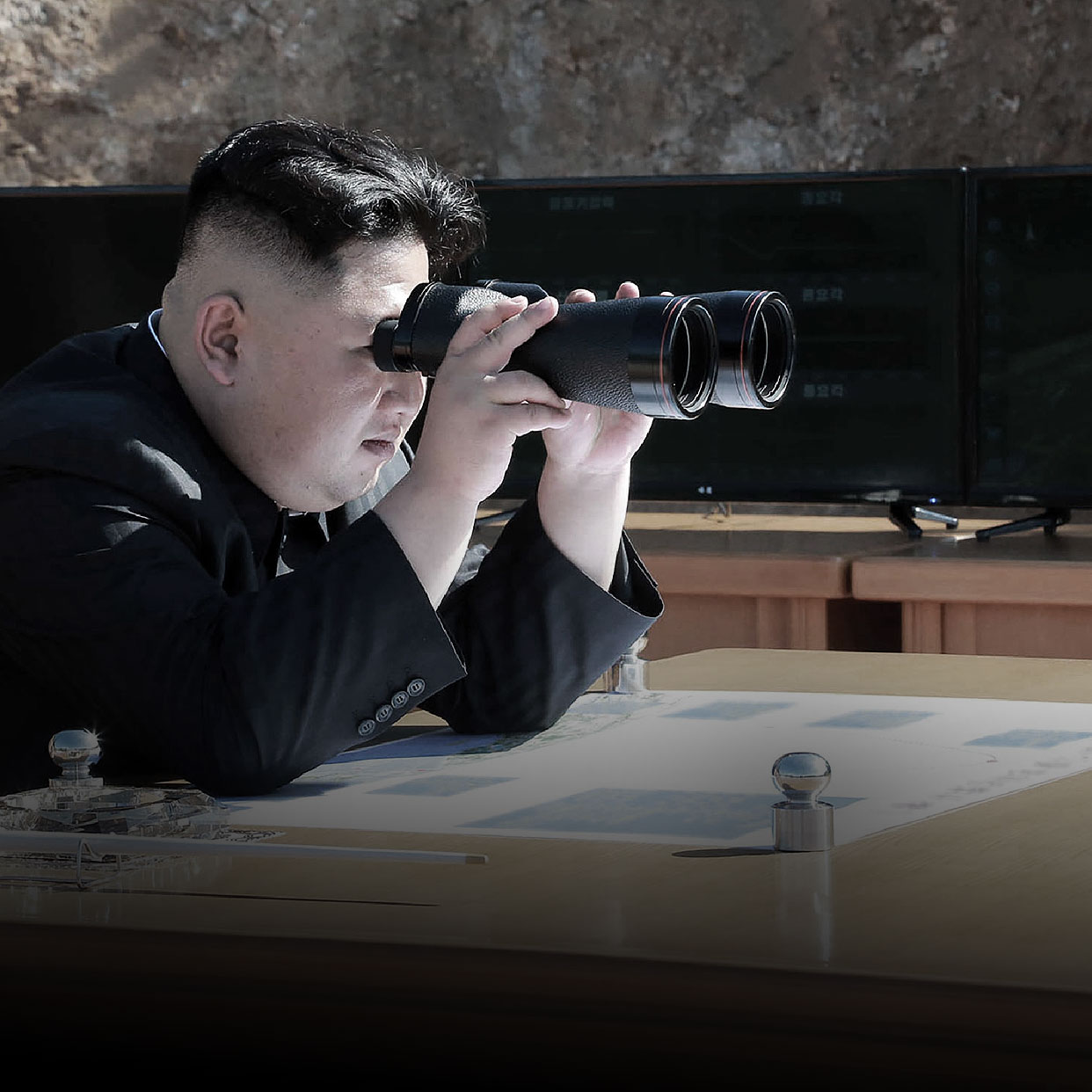North Korea rejects peace talks with South Korea
Pyongyang follows statement with two further missile tests

A free daily email with the biggest news stories of the day – and the best features from TheWeek.com
You are now subscribed
Your newsletter sign-up was successful
North Korea has rejected further peace talks with South Korea and declared that its decision is “completely the fault of South Korea's actions”.
The statement followed a speech by South Korea President Moon Jae-in on Thursday, in which he promised to unite the Korean peninsula by 2045. In it, he said: “A new Korean peninsula, one that will bring peace and prosperity to itself, east Asia and the world, awaits us.”
Describing Moon as “impudent” and “a shameless man,” the North rejected further dialogue when “South Korea continues its joint military exercise” with the US.
The Week
Escape your echo chamber. Get the facts behind the news, plus analysis from multiple perspectives.

Sign up for The Week's Free Newsletters
From our morning news briefing to a weekly Good News Newsletter, get the best of The Week delivered directly to your inbox.
From our morning news briefing to a weekly Good News Newsletter, get the best of The Week delivered directly to your inbox.
The statement added: “We even question if [Moon's] thought process is sound when he mentions ‘talks’ between North and South while playing out war scenarios that plan to destroy most of our armies in 90 days.”
The North's reunification spokesman added: “We have no more words to talk with South Korean officials.”
Sky News points out that “denuclearisation talks have been stalled” despite an agreement to revive them at a June meeting between US President Donald Trump and North Korean leader Kim Jong Un.
Upping the ante yet further North Korea has test-fired two missiles into the sea off its eastern coast, according to the South Korean military.
A free daily email with the biggest news stories of the day – and the best features from TheWeek.com
The two “unidentified projectiles” travelled 230km (140 miles) reaching an altitude of 30km (18 miles), says South Korea's Joint Chiefs of Staff. It was the sixth such test in less than a month.
Although President Donald Trump has downplayed the weapons tests, CNN says analysts believe “they should give reason for Washington to worry”.
This “latest provocation” is intended to “pressure Seoul into pushing cross-border economic ties and persuading Washington to make concessions in any future talks over Pyongyang’s nuclear weapons programme”, The Guardian says.
-
 The environmental cost of GLP-1s
The environmental cost of GLP-1sThe explainer Producing the drugs is a dirty process
-
 Greenland’s capital becomes ground zero for the country’s diplomatic straits
Greenland’s capital becomes ground zero for the country’s diplomatic straitsIN THE SPOTLIGHT A flurry of new consular activity in Nuuk shows how important Greenland has become to Europeans’ anxiety about American imperialism
-
 ‘This is something that happens all too often’
‘This is something that happens all too often’Instant Opinion Opinion, comment and editorials of the day
-
 Epstein files topple law CEO, roil UK government
Epstein files topple law CEO, roil UK governmentSpeed Read Peter Mandelson, Britain’s former ambassador to the US, is caught up in the scandal
-
 Iran and US prepare to meet after skirmishes
Iran and US prepare to meet after skirmishesSpeed Read The incident comes amid heightened tensions in the Middle East
-
 Israel retrieves final hostage’s body from Gaza
Israel retrieves final hostage’s body from GazaSpeed Read The 24-year-old police officer was killed during the initial Hamas attack
-
 China’s Xi targets top general in growing purge
China’s Xi targets top general in growing purgeSpeed Read Zhang Youxia is being investigated over ‘grave violations’ of the law
-
 Panama and Canada are negotiating over a crucial copper mine
Panama and Canada are negotiating over a crucial copper mineIn the Spotlight Panama is set to make a final decision on the mine this summer
-
 Why Greenland’s natural resources are nearly impossible to mine
Why Greenland’s natural resources are nearly impossible to mineThe Explainer The country’s natural landscape makes the task extremely difficult
-
 Iran cuts internet as protests escalate
Iran cuts internet as protests escalateSpeed Reada Government buildings across the country have been set on fire
-
 US nabs ‘shadow’ tanker claimed by Russia
US nabs ‘shadow’ tanker claimed by RussiaSpeed Read The ship was one of two vessels seized by the US military